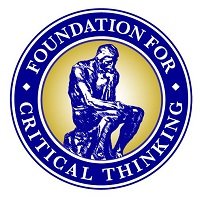
Critical thinking is not an isolated goal unrelated to other important goals in education. Rather, it is a seminal goal which, done well, simultaneously facilitates a rainbow of other ends. It is best conceived, therefore, as the hub around which all other educational ends cluster. For example, as students learn to think more critically, they become more proficient at historical, scientific, and sociological thinking. They develop skills, abilities, and values critical to success in everyday life. All of this assumes, of course, that those who teach have a solid grounding in critical thinking and in the teaching strategies essential to it.
To develop a deep understanding of the foundations of critical thinking involves a long-term approach to learning and applying those foundations. Faculty in a long-range professional development program come to recognize explicitly that critical thinking is not just one of many divergent educational aims, but is rather a way of teaching and learning at a high level of effectiveness. This workshop will thus focus on a substantive, robust framework for critical thinking and how it can be placed at the heart of the institution’s mission, accreditation, or reaccreditation process. A long-term approach to staff development will be emphasized.